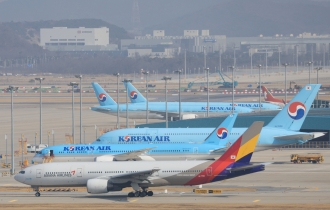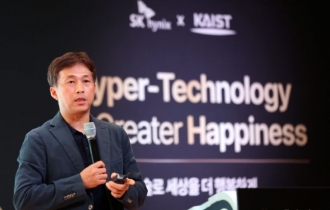What cards does Kumho Asiana chief have to play to buy back tire unit?
[THE INVESTOR] The fate of Kumho Tire hangs in the balance as Kumho Asiana Chairman Park Sam-koo prepares a management plan to submit to creditors of Kumho Tire to persuade them to keep him on board as top brass, and to open another opportunity to buy back the beleagured tire company.
Creditors of the tire company led by Korea Development Bank have asked Park to submit a proposal Tuesday to revive the flailing finances of the tire company, which saw a 50.7 billion won loss in operating profits in the first half of 2017. If his proposal is not accepted, the creidtors may move to fire Park and other top executives at the tire unit.

Losing management leadership over Kumho Tire would be disastrous for the Kumho Asiana chief, who lost ownership of the tire unit in 2010 as part of a debt restructuring deal. Kumho Tire had paid dearly for Kumho Group’s acquisition of shares in Daewoo Engineering and Construction, as well as building new plants in China and the US.
Although suffering fallout from intergovernmental tensions between Korea and China that led to a sharp drop in orders for Korean automakers operating in China, Kumho Tire remains one of the most profitable units of the group, which operates Asiana Airlines. Park has said publicly and repeatedly that he aspires to buy back Kumho to reconstruct his empire.
The original restructuring deal had included giving Park the right of first refusal if and when
The main issue is Kumho Tire’s debts totaling nearly 1.6 trillion won ($1.4 billion), which are scheduled for repayment starting at the end of September through to the end of the year. To keep Kumho Tire afloat, creditors are expected to need to pour 400 billion to 410 billion won of additional funds into the company.
In March this year, creditors of Kumho Tire including Korea Development Bank decided to sell a controlling stake in Kumho Tire to Chinese tiremaker Qingdao Doublestar. The two sides signed a stock purchase agreement for a 42 percent stake.
However, the original agreement included a stipulation that the contract could be voided if Kumho Tire’s performance were to fall. In the first half of this year, Kumho Tire saw a 50.7 billion won loss in its operating profits due to troubles with its business in China.
Doublestar requested a price cut from the original deal, but was unable to reach a suitable agreement with the creditors. The creditors sent a formal proposal to Doubestar to void the stock purchase agreement earlier this month.
If Kumho Asiana Chairman Park Sam-koo hopes to buy back Kumho Tire to reconstruct the Kumho empire, he must show the creditors that he has a plan to change his management strategy to revive the tire company’s Chinese business.
Kumho Tire took a hit in China as part of the fallout from intergovernmental tensions that led to a drop in Korean auto sales in the country.
On Sept. 6, Kumho Tire’s stocks dropped 18 percent as the Doublestar deal appeared to fall apart.
It is unclear what Park will be able to offer in terms of improving price competitiveness and how that will reflect in recovery time. Possible elements of the plan include selling the company’s Chinese plant and recruiting investors for a capital increase.
“The anticipated rebound in the China plant’s utilization will likely take longer as a sale deal is put off. The deal itself, even if it gets sealed, can increase uncertainty over management and hurt the company’s brand, prompting customers to leave,” wrote analyst Feynman Jeon for Daishin Securities.
If the creditors do not accept Park’s management plan, they will move to dismiss Park as well as other top executives at Kumho Tire and possibly seek to hand over the company to a court receivership. However, a court receivership could lead to possible labor restructuring, which would not only face opposition from Kumho Tire’s union and regional leadership but would also go against the job security focus of the current Moon Jae-in administration.
By Won Ho-jung/The Korea Herlad (hjwon@heraldcorp.com)
EDITOR'S PICKS
- Seoul shares rattled by Israeli attack on Iran; Kospi dips to nearly 11-week low
- S-Oil donates W560m to support firefighters
- LG CNS teams up with Yonsei University to nurture AI specialists
- Polestar 4 to make Korean debut in June
- S. Korea pledges W23tr venture capital fund for green investment at G20 meeting
- Sungsimdang outperforms bakery giants to log sales over W100b
- France rejects opening Paris flight routes to T'way Air, deals blow to Korean Air merger
- SK hynix chief underscores chip cooperation between Korea, US















